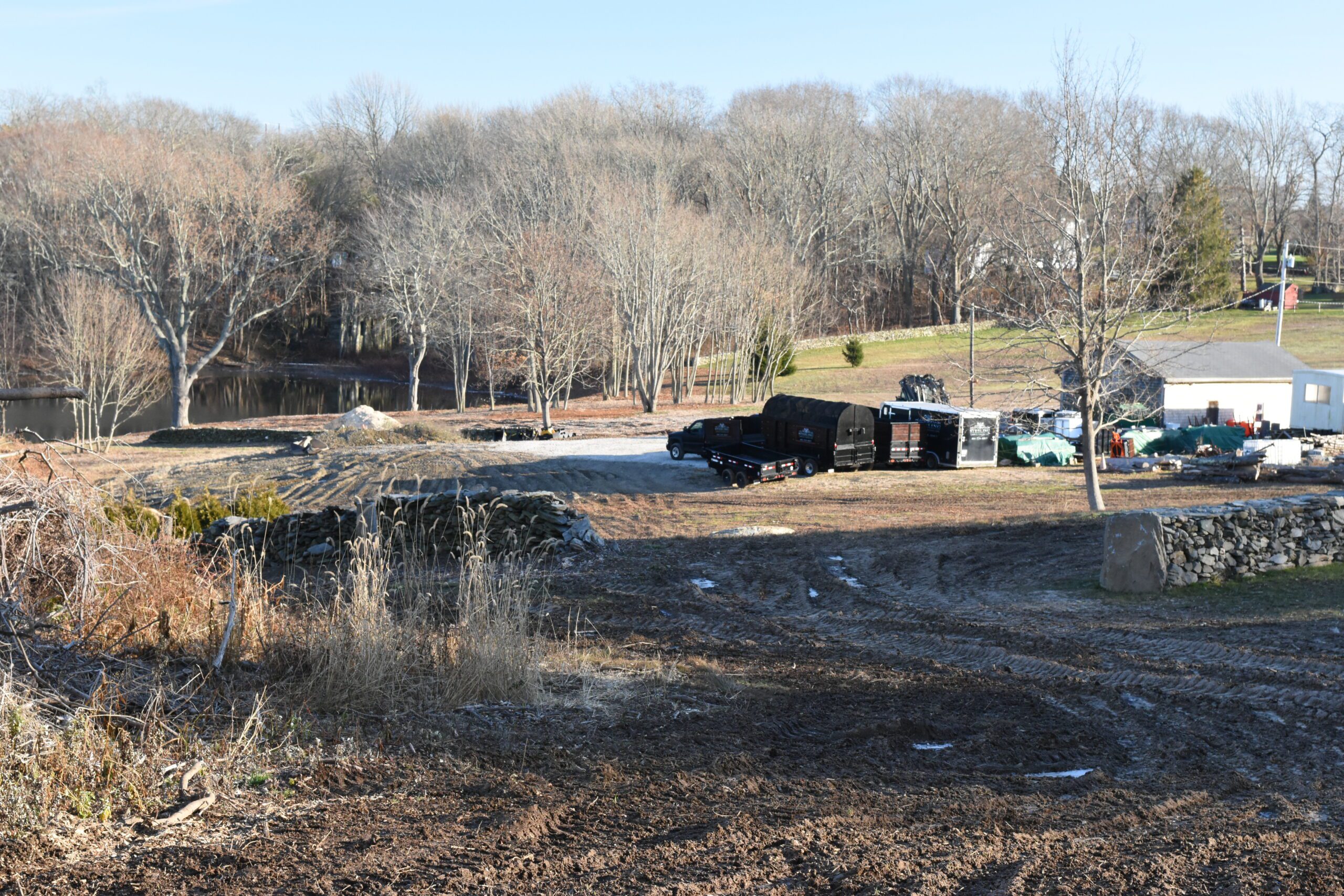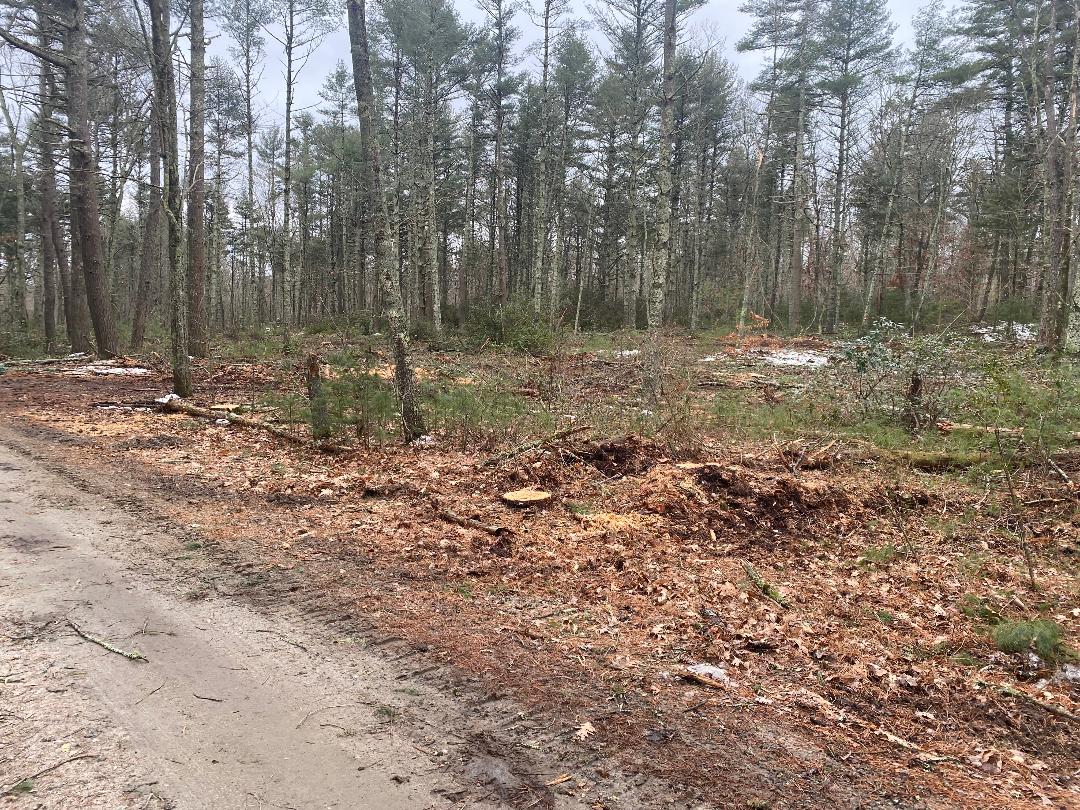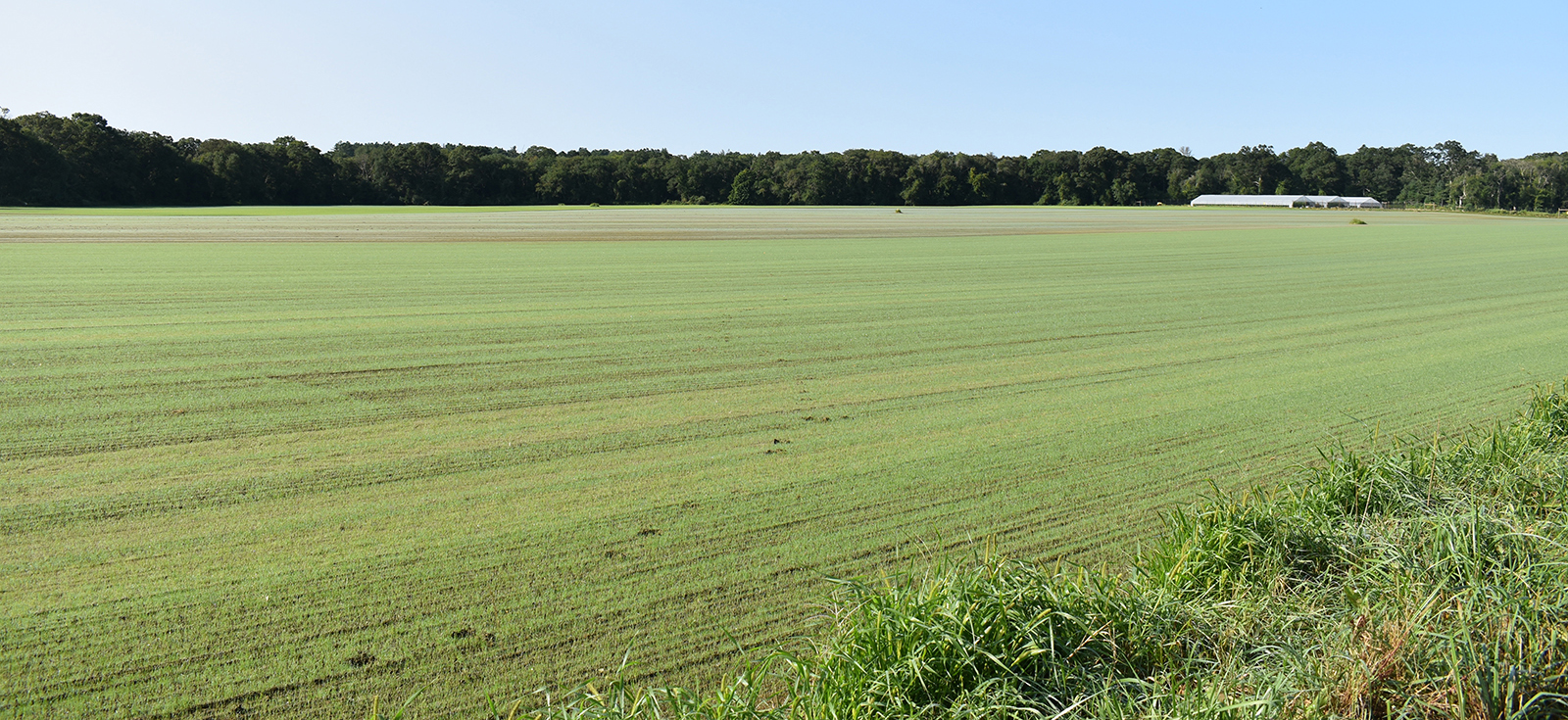A Walk in the Woods: A Vital Forest Ecosystem in Jeopardy
Organizations hold rally to protect Rhode Island’s largest tract of forestland from bulldozers and fossil fuel expansion
July 14, 2018
CHEPACHET, R.I. — Nine days before the final phase of Energy Facility Siting Board hearings were set to resume, environmentalists and conservationists gathered at Pulaski State Park for one final collective push to emphasize the threats posed by the controversial Clear River Energy Center.
The construction and operation of a fossil-fuel power plant in the northwest corner of the Ocean State would cause permanent damage and pose unacceptable risks to the Narragansett Bay watershed, according to Topher Hamblett, director of advocacy and policy for Save The Bay.
The power plant, which will be built within a critical wildlife corridor, will disrupt the integrity of the corridor and light pollution from the facility will disturb bird migrations, according to Meg Kerr, senior director of policy for the Audubon Society of Rhode Island.
A new power plant — and the pavement, light and noise pollution, wetland destruction, and deforestation that comes with it — at this crucial location would irreversibly disrupt one of the region’s healthiest ecosystems, according to Tim Mooney, marketing and communications manger for the Rhode Island chapter of The Nature Conservancy.
The proposed power plant, its auxiliary operations, and the pollution it generates will disrupt, harm, and eventually destroy this open space and habitat that has been accumulated acre by acre over generations, according to Lisa Mosczynski, president of the Metacomet Land Trust board of directors.
The July 10 press conference and informative hike hosted by the Burrillville Conservation Commission was called to “sound the alarm about the potential fragmentation of irreplaceable forestland, the obliteration of special aquatic sites, and the impact of climate change.”
Chicago-based Invenergy Thermal Development LLC has proposed building a nearly 1,000-megawatt fossil-fuel power plant on privately owned forestland in Burrillville. The site is surrounded by wildlife management areas and popular public recreation destinations.
Pulaski State Park was chosen to host the recent media event because the forest ecosystem here is similar to what can be found a few miles to the north at the proposed Clear River Energy Center site off Wallum Lake Road.
The five conservation organizations and other opponents of the proposed fossil fuel power plant, such as the Blackstone Valley Tourism Council, said such a project would jeopardize the integrity of the 26.6-square-mile, three-state contiguous forest, and would have wide-ranging consequences to the environment Rhode Islanders have spent millions to protect.
The featured guests who read from prepared statements during the press conference and those who spoke during the 35-minute hike all noted that a vital forest ecosystem that houses hundreds of animal and plant species would be dramatically impacted by the facility’s development. The entire project, including interconnection work, is expected to require the clear-cutting of some 64 acres of forestland, including disrupting 10 wetland acres.
On the site of the proposed natural-gas/diesel-powered facility alone there are 47 species identified in the Rhode Island Wildlife Action Plan as “species of greatest conservation need,” including some that are endangered or threatened, such as the bobcat.
Black-throated blue warblers and cerulean warblers return annually to the same forest to breed, including this forested tract where another fossil-fuel power plant is proposed. Their populations, however, are on a decline throughout their range. Cerulean warblers, for instance, have decreased by 70 percent during the past 50 years.
During the press conference and subsequent hike, the park’s pond was visited by a bald eagle and an osprey. Songbirds were heard, and well-engineered beaver dams were seen.
Kevin Cleary, chairman of the Burrillville Conservation Commission, and Paul Dolan, area director of the Rhode Island Resource Conservation & Development Area Council Inc., led the forest hike around Peck Pond.
They, like the representatives from the Audubon Society, Save The Bay, and The Nature Conservancy, stressed the importance of the Invenergy site to a much larger corridor of forestland that straddles Rhode Island’s western border with Connecticut and Massachusetts.
Mooney said this tract of undeveloped land is some of the healthiest forest on the East Coast, offering habitat to migratory birds and other wildlife. He noted that a Nature Conservancy analysis of wildlife corridors of the eastern United States — not just Burrillville and not just Rhode Island — shows that the plant is proposed to be built on top of an essential pinch point for habitat connectivity. When habitat connectivity is cut off, species that can’t migrate or adapt will not survive, he added.
“We rarely take a position on a specific development,” Mooney said. “However, Invenergy’s proposed Clear River Energy Center would do such harm to Rhode Island’s ecology, to our wildlife, to our resilience to climate change that we are compelled to oppose the new power plant.”
Save The Bay’s Hamblett said this forested three-state area acts as a filtering system for the entire Narragansett Bay watershed. He noted that the high-quality habitat within the Clear River and Branch River watersheds, which are within the bay watershed, are crucial components of the small pristine headwater streams on which native species of trout and other aquatic wildlife depend.
“We are here today to reaffirm our opposition to the power plant proposed by Invenergy because the construction and operation of the plant would cause permanent damage and pose unacceptable risks to the Narragansett Bay watershed,” Hamblett said.
Mosczynski, of the Massachusetts-based Metacomet Land Trust, said the environmental issues associated with this development go beyond Rhode Island.
“Make no mistake about it. This is not a seamless integration of a power plant with a forest,” she said. “Invenergy’s proposed plant will have a regional impact and will severely compromise the forest and hydrologic resources of the entire area.”
Kerr said Audubon opposes the Invenergy power plant because climate change is the existential threat facing wildlife and people.
“As a state and as a world we must quickly decarbonize our energy,” she said. “Rhode Island should not be investing in new fossil-fuel infrastructure but rapidly moving toward renewable-energy sources.”
Energy and environmental experts are scheduled to begin testifying July 19 before the EFSB. There will be no public comment. The EFSB is expected to vote, during a public meeting, on the application before the end of the year. A written ruling will be released and a seven-day appeal period starts after the ruling is published.




This would be a disgrace to our environment if it is allowed to be built. All the agencies should send a letter as one to the Governor with all the reasons why this should not happen. We as a small state cannot give up on 60+ acres of tree lined conservation property. Make them find other property that is already stripped of life.